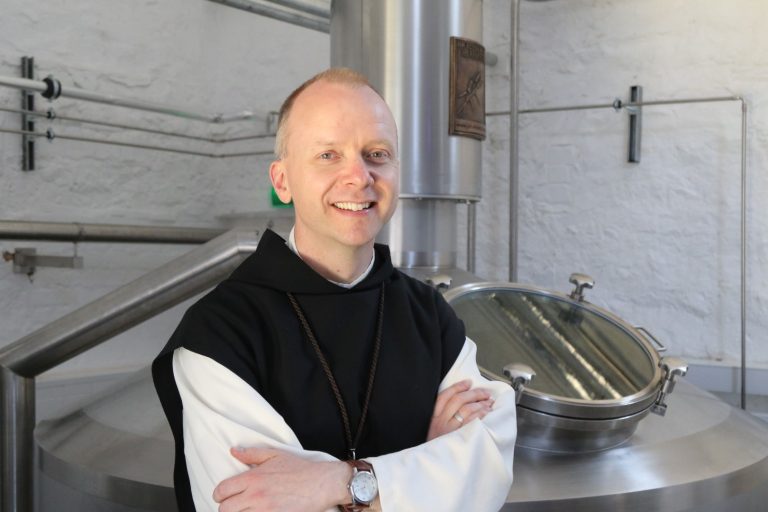Each year, we begin Advent by singing the Introit on its first Sunday: Ad te levavi. He takes up a verse from Psalm 24: “To you I have lifted up my soul: My God, I trust in you. » The parallelism between the descent and the ascension of God is a leitmotif of the liturgy, structurally anchored in the Mass, when we “lift up our hearts” to prepare the descent of the Spirit and the coming among us in the mystery of the Son of God.
God, who makes all things new, allows us to rise from the dust of old habits, old dependencies, old grudges. He calls us to rise and, by grace, to soar.
Are we prepared for the new?
The Canaanite religion, in whose vicinity biblical hope was formulated, held that the earth was reborn each year at sowing time. This vision gave men and women reason to rejoice in sensual excesses.
Secular Christmas – to hide your despair? – has a lot in common with this cult. It is important to insist on Christian difference. The renewal announced by the Gospel is not a simple recharging of batteries. He speaks of youth restored.
You don’t have to be old to know the opposite of youth. I often think of a letter that the poet Marie Noël wrote one day to her faithful confessor and friend, Father Arthur Mugnier. The poet was not well. Because of an illness? No, the reason is deeper. “I am suffering from sudden senescence,” she writes, explaining: “The source of my music has dried up.”
Marie Noël went through this crisis in 1928. That year, she was younger than I am today. I flatter myself by thinking that when speaking of senescence she was referring less to the proximity of death than to the fatigue of the soul, to an interior paralysis.
This type of existential aging is now epidemic. We find it among young people. It is not uncommon to meet despondent adolescents, who feel like they have lived a hundred years, who have no joy in life, being instead vulnerable to the dark pull of annihilation. It is as if the sap they contain is dry or petrified.
God became man to heal this evil. For our ancestors in the faith, this was self-evident. They lived in a twilight world and they knew it. Think about the hymn we sing at Advent vespers. The text dates from the middle Ages. The beautiful third verse expresses profound insight:
When the world leaned towards its night
You came out like a bridegroom from his bridal chamber –
The purest enclosure of the one who is both Virgin and Mother.
The womb of the Theotokos is rightly considered a “wedding chamber”. There, the divine Logos was lovingly united with our human nature. This nature, weighed down by sin, haunted by death, was invested with a spark of glory which now continues to move us, refusing to leave us in peace. It reminds us of what our being, thirsty for rejuvenation, is capable of doing.
I love a footnote that Henri de Lubac, one of the great theologians of the last century, added to a homily by Origen on the Exodus in the third century. Explaining the verse in which the Lord gives Israel the promise of manna, Origen placed emphasis on the expression “In the morning they will be satisfied with bread”, seeing it as a reference to the incarnate and Eucharistic Christ as the eternal star of the Morning.
Abbot de Lubac, in an otherwise austerely erudite setting, allows himself this marginal outburst: “For Origen, Christ gave perpetual youth to an aging world. It expresses the feeling of joy which carried the first Christian communities, conscious of being the heirs of an ancient tradition while inaugurating a new world. It still depends on today’s Christians whether Christianity will appear to everyone as the youth of the world, its hope.”
Here we have the task before us: to usher in a new world. We must be bearers of hope, reject the seduction of the night, walk entirely, that is to say chastely, towards the dawn. By living like this, we will experience the joy of faith.
The grace of the Incarnation was given to us to make us new men and women. God became man not only to be worshiped in his humanity; he was adorable, enthroned on the seraphim. He came to transform our lives.
Let our soul arise and sing: “O God, you are my God; I count on you; make me worthy of your promises! The fulfillment of this intention, infused in our minds at the beginning of Advent, is prophetically manifested on the last day of Christmas, when Christ is presented in the Temple. The cross eclipses the nativity scene. It beckons. This calls for a response. There is no need to procrastinate. Hesitation is ancient and nocturnal, the antidote to youth renewed “like that of the eagle” (Ps 103:5) through the Easter waters, to life on the rise.
The Right Reverend Erik Varden OCSO is Bishop-Prelate of Trondheim in Norway.
![]()


